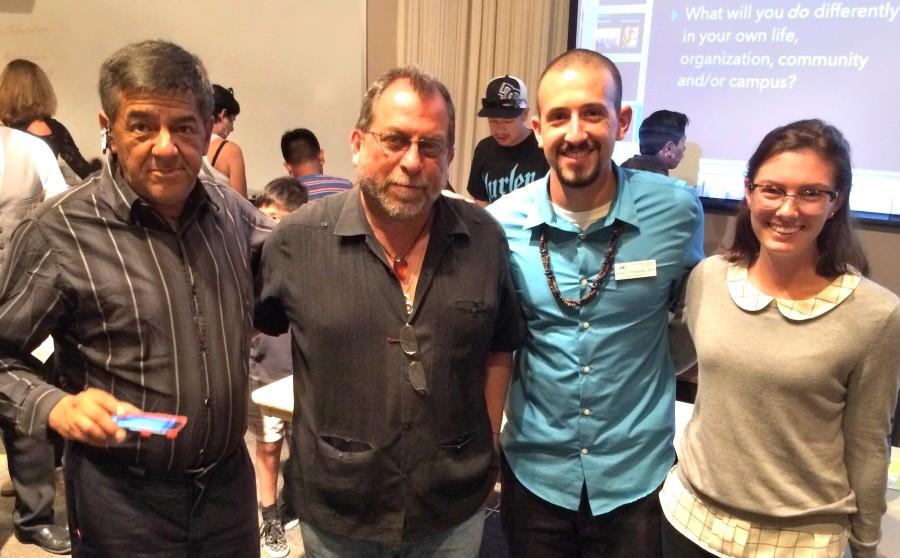CSUSM event sheds light on housing issues from US to Mexico Speakers inform community of low-income, immigrant struggles
October 29, 2015
Students, faculty and community members gathered together to learn about housing issues in both Mexico and the United States at Housing is a Human Right, an event that took place on Friday, Oct. 23 at CSUSM.
Featuring Enrique Reynoso of Los Panchos, this event was presented in both English and Spanish in order to accommodate the bilingual crowd.
Dr. Arcela Nuñez-Alvarez spoke first about housing issues affecting lower-income families and immigrants.
“One in five Mexican children are ill and the research I have been doing for the past ten years has revealed that substandard housing is a factor in this problem. Exposure and conditions of housing are directly correlated to health issues such as Asthma. Substandard housing is making our communities sick,” said Dr. Nuñez-Alvarez.
The following presentation was lead by Bárbara Suárez Galeano who spoke about her involvement with the Mexico Solidarity Network, an anti-capitalist network that asks for change.
“It’s important for us as a collective to fight back against a system that commodifies people. We fight back against white supremacy as well as colonial-patriarchy,” said Galeano.
Assistant professor César Rodriguez introduced Enrique Reynoso, who grew up in the midst of Mexico’s civil war. Once he realized how corrupt the system of Mexico’s government was, Reynoso dedicated his life to trying to change that system.
“In Mexico during the 1980s, people migrated into popular cities such as Guadalajara and Mexico City. As a result, people who were originally in the center of those cities were pushed outside of their homes,” said Reynoso.
Although this issue of gentrification was initially kept under wraps in Mexico, everything changed after the 1985 Mexico City Earthquake. According to Reynoso, the government took advantage of people’s situations and began selling land to corporations who could afford it and forcing the people who could not pay out into the streets.
“Neo-libralism is a model of capitalism executed in a more violent manner. The government made it clear to us that their lowest concern was people, specifically, poor people,” Reynoso said.
Reynoso and others had a plan to fight back against government-paid evictions, though, and began organizing Los Panchos. Also known as Organización Popular Francisco Villa Independiente, Los Panchos is a social movement of thousands of working-class people who have built their own neighborhoods in Mexico City.
Los Panchos developed in response to Mexico’s inadequate response to the devastation of the 1985 earthquake. This innovative movement has managed to create their own electric grids, playgrounds, clinics, schools and much more.
The event came to a close as the three speakers answered questions from the audience and gave words of advice on aiding communities affected by gentrification both in Mexico and the United States. As the audience filtered out, many community members stopped to thank and take photos with the speakers.


